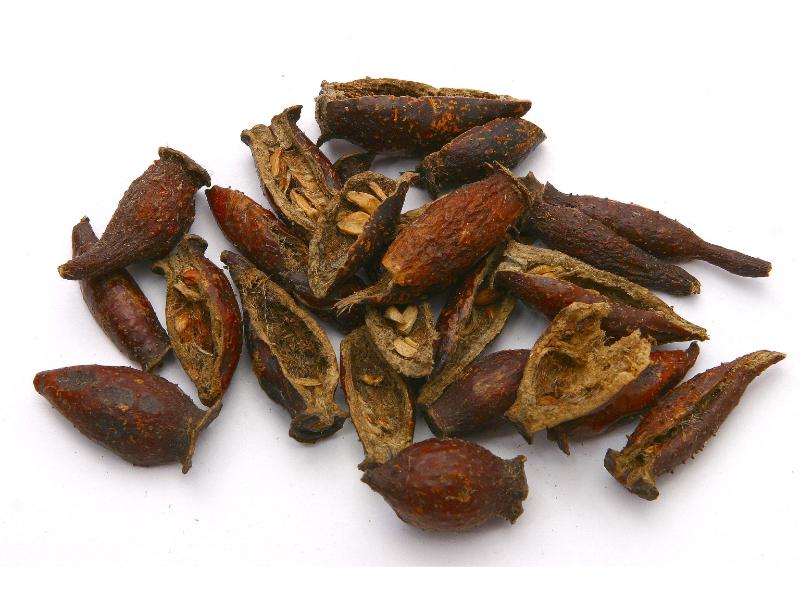Search in medicinals
Rosae Laevigatae Fructus
Cherokee rose fruit
金樱子 〔金櫻子〕 jīn yīng zǐ

Alternate Chinese names: 金罂子 jīn yīng zǐ; 金樱肉 jīn yīng ròu; 刺榆子 cì yú zǐ; 刺梨子 cì lí zǐ; 山鸡头子 shān jī tóu zǐ; 山石榴 shān shí liú; 金莺子 jīn yīng zǐ; 黄刺果 huáng cì guǒ; 蜂糖罐 fēng táng guàn; 槟榔果 bīng láng guǒ; 金壶瓶1 jīn hú píng; 野石榴 yě shí liú; 糖橘子 táng jú zǐ; 小石榴 xiǎo shí liú; 黄茶瓶 huáng chá píng
Kingdom: Plant
Origin in PRC Pharmacopoeia: Rosa laevigata Michx. (PRC Pharmacopoeia)
Origin in unofficial sources: Rosa laevigata Michx.*; Rosa bella Rehd. et Wils.; Rosa odorata Sweet var. gigantea Rehd. et Wils.; Rosa macrophylla Lindl.; Rosa sweginzowii Koehne
Use: Medicinal
Category: Astringing agents / Intestine-astringing diarrhea-checking agents
Properties: Sour, astringent; balanced.
Channel entry: Kidney, bladder, large intestine channels.
Actions and indications:
- Secures essence, reduces urine, and checks vaginal discharge: Seminal emission; seminal efflux; enuresis; frequent urination; vaginal discharge.
- Astringes the intestines and checks diarrhea: Enduring diarrhea and dysentery.
Dosage and method: Oral: 6–12g in decoctions.
Warnings: Contraindicated in repletion fire or other repletion evils.
Quality: Large reddish yellow fruits with the hairs and prickles removed are the best.
Production area: Fújiàn, Húnán, Guǎngdōng.
Back to search result Previous Next